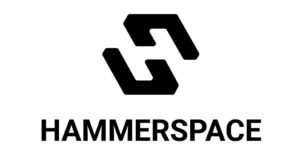The capability to virtually combine far-flung data silos into a single global namespace and access it at HPC-class speed has enabled Hammerspace customers to solve tough data problems. It also has caught the attention of investors at Altimeter Capital, which is leading a $100 million Series B investment in Hammerspace to take advantage of the latest oscillation in big data gravity.
“The conventional wisdom of ‘move your compute to the data’ doesn’t hold anymore,” Hammerspace CEO and founder David Flynn said in the latest episode of Hammerspace’s “Data Unchained” podcast with Hammerspace CMO Molly Presley and Altimeter Capital Partner Jamin Ball that was posted today.
“The only thing that has more gravity than data…are the GPUs,” Flynn continued. “The GPUs have to be tethered to the physical world. They have to be powered and cooled and live somewhere. And it’s such a massive investment, you have to move the data to them, not the other way around.”
GPUs, of course, are needed to train and run massive AI models. Organizations not only need to buy the expensive accelerators, but equip them with enough electricity and cooling to make them work. Storage and data are also considerations, but copying and moving petabytes or exabytes of unstructured data to on-prem or cloud data center to get them next to the data is not something that organizations want to do.
The flipping of the big data poles is a phenomenon that the folks at Altimeter Capital have also noted. As one of the preeminent Silicon Valley venture capital firms, Altimeter had the foresight to invest in iconic big data companies like Snowflake, MongoDB, and Confluent. It also was an early investor in Tabular, which Databricks acquired last year for between $1 billion and $2 billion.
“What’s happened over the last five to 10 years is data has just become way more dispersed, way more spread out,” Ball said on “Data Unchained. “Everyone loves the idea of a centralized data platform, but it just doesn’t work that way. You have on-prem storage, you have cloud storage, you have AWS storage and Oracle storage. You have hybrid setups. Just getting it all together and corralling it was really hard.”
Ball and his colleagues at Altimeter have noted a pattern in data infrastructure deployments. Data oscillates between being centralized and decentralized. “In decentralized positions of the path, what we end up seeing is lots of lock-in that gets created,” Ball continued. “And that lock-in creates a lot of cost and a lot of complexity. We are looking for companies that help break that lock in.”
Hammerspace is one of those companies that Altimeter is betting will increase in value at the other end of this AI-fueled “super-cycle,” as Ball called it. What attracted Altimeter to Hammerspace is how it eschews exotic distributed file systems like GPFS and Lustre for something that everyone knows (if not loves): good old NFS. But of course, the NFS that Hammerspace uses has been turbocharged with distributed capabilities, and they’ve been baked into Linux, which are enhancements to the operating system kernel that Hammerspace itself helped develop.
“What we saw with Hammerspace was something that… could break that data lock-in in a true open standards-based platform, which we believe will be the end state for the data infrastructure world for companies that truly want to leverage the power of enterprise AI, and the power of all their data, without it being siloed and locked into individual data platforms,” Ball said.

Hammerspace CMO Molly Presley (left), Hammerspace CEO and founder David Flynn (center), and Altimeter Capital Partner Jamin Ball (right) appeared on episode 86 of Hammerspace’s “Data Unchained” podcast
Object storage is practically limitless, and could easily adapt to the decentralized portion of the data cycle. However, it’s not particularly performant. What’s different with this swing of the big data poles is that AI demands high-performance.
“It goes to the heart of what makes Hammerspace so unique,” Flynn said on the podcast. “In the past, the way data has transmitted between system is using legacy protocols, like NFS and S3. Those are all like single-lane country roads, very slow to traverse.
“What we had to do…was introduce new protocols that are now standard, and build them into Linux [to create] what is a multi-lane super highway that allows the data to flow to many systems simultaneously, distributed, while coordinated by a control plane that is not in the data path, a sideband control plane. This new super-highway system that’s now native to Linux, is what’s opened up the opportunity to have distributed data be logically unified into a single global namespace.”
Joining Altimeter in the investment is ARK Invest. ARK made early bets on other iconic Silicon Valley firms like Tesla, Nvidia, and Palantir, and sees Hammerspace as a company that can have a potentially big impact on its market. New and existing vendors rounded out the $100 million series B.
Flynn noted that Hammerspace has been largely self-funded and engineering-focused up to this point. The Series B round will enable the company to invest in sales and marketing efforts to push the offering.
Related Items:
Hammerspace CEO David Flynn Joins the Big Data Debrief
Object Storage a ‘Total Cop Out,’ Hammerspace CEO Says. ‘You All Got Duped’
Hammerspace Hits the Market with Global Parallel File System
The post Hammerspace Raises $100M as the Big Data Poles Flip appeared first on BigDATAwire.
0 Commentaires